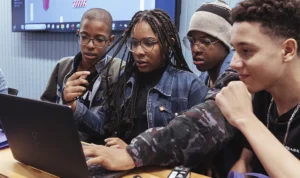Face-to-face classes have been back for some time in schools in Brazil, but the impact of the period in which students underwent remote teaching, via the internet, is still noticeable in classrooms, reports the Unicef.
Around two million children and adolescents aged 11 to 19 are out of school in Brazil, equivalent to 11% of the sample interviewed by the institute Ipec (Intelligence in Research and Strategic Consulting), who carried out the research at Unicef's request with 1,100 students to measure the long-term impact of the pandemic on education.
For 48% of those interviewed, the need to work was the main reason that led them to abandon their studies. The other most common justifications were: “because I couldn’t follow the teachers’ explanations” (30%), “because the school had not resumed face-to-face classes” and “because I had to take care of other family members” (28%).
Considering the economic nature of the main reason that led to school dropouts in recent years, the research reports that, of those interviewed in class AB, around 4% stopped attending school — and this number is more than four times higher among the most vulnerable: 17% of boys and girls in DE classes dropped out of school during this period.
Currently, among students who are in school, there is still a risk of an increase in dropouts: in the last three months, 21% of students aged 11 to 19 in public schools thought about dropping out of school. Half of them have one reason in common: they cannot follow the explanations or activities given by the teachers.
One of the reasons for this difficulty in learning may be directly related to remote teaching. Regarding the perception of learning from school activities, 15% of the students interviewed responded that they did not learn anything that they should have learned from remote school activities during the pandemic. Regarding face-to-face activities in the last three months, the index drops to 8%.


